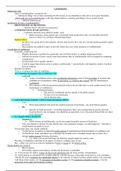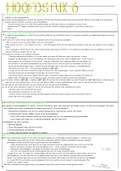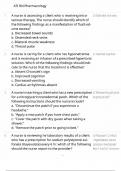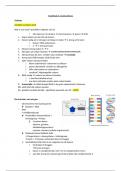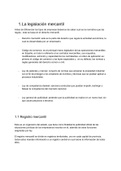Hippocratic oath
- Duty of confidentiality= extremely old
- ‘… whatsoever things I see or hear concerning the life of men, in my attendance on the sick or even apart therefrom,
which ought not to be noised abroad, I will keep silence thereon, counting such things to be as sacred secrets.’
o ’Difficult balancing act
Justification for duty of confidentiality?
- DEONTOLOGICAL REASONING
o → Intrinsic moral value (privacy/autonomy)
- CONSEQUENTIALIST REASONING
o → Utilitarian (promote more effective health care)
Better outcomes- better patient care is promoted when people know they can trust their doctor/be
honest w/ them. Can tell them embarrassing things.
Raanan Gillon:
o In order to do a good job for their patients, doctors often need to have info of a sort that people generally regard
as private
o Many patients are unlikely to pass on this info unless they have some assurance of confidentiality
A legal duty of confidence?
- Extremely complicated law
o Whether disclosure is justified in a particular case will often involve a complex balancing exercise
o Difficult for doctors to know exactly when their primary duty of confidentiality will be trumped by competing
considerations
o Not all patient info is equally sensitive
o Could be argued that priority given to patient confidentiality = unrealistically individualistic model of medical
decision-making
- Multiple exceptions
- There is a common law duty of confidence –
- AG v Guardian Newspapers (No 2) [1990] AC 109,
o Lord Goff
‘a duty of confidence arises when confidential information comes to the knowledge of a person (the
confidant) in circumstances where he has notice, or is held to have agreed, that the information is
confidential…
The existence of this broad general principle reflects the fact that there is such a public interest in the
maintenance of confidences…
3 limiting principles:
o Info must be confidential and not already in the public domain
o No duty of trivial information
o Not an absolute duty
- Ashworth Hospital Authority v Mirror Group Newspapers (MGN)
o Facts:
Mirror had published info about the medical treatment of Ian Brady - one of the Moors murders
o HL:
Security of medical records = overriding importance that it was essential that the person who had
disclosed them to the newspaper was identified and punished, even if the patient himself did not object
to the disclosure
- W v Egdell [1990] 1 All ER 835
o Bingham LJ
Public interest of confidentiality can be outweighed by public interest of disclosure
o Facts: psychiatrist to disclose the fact that the man, who murdered 5 people, was still dangerous - clear that it
would benefit the public to know
- The decided cases very clearly establish:
o (1) that the law recognises an important public interest in maintaining professional duties of confidence; but
o (2) that the law treats such duties not as absolute but as liable to be overridden where there is held to be a
stronger public interest favouring disclosure.’
e.g. where you can prevent harm- but balances- people might not want to come
- The duty of confidence could also be an aspect of a doctor’s ordinary duty of care
- But → there will only be an action in negligence if harm is caused by the breach of duty
Human Rights Act Article 8
o But exceptions
o Will usually require some balance- whether the disclosure is justifiable
- (1) Everyone has the right to respect for his private and family life, his home and his correspondence.
- (2) There shall be no interference by a public authority with the exercise of this right except such as is in accordance
with the law and is necessary in a democratic society in the interests of national security, public safety or the economic
well-being of the country, for the prevention of disorder or crime, for the protection of health or morals, or for the
protection of the rights and freedoms of others.


